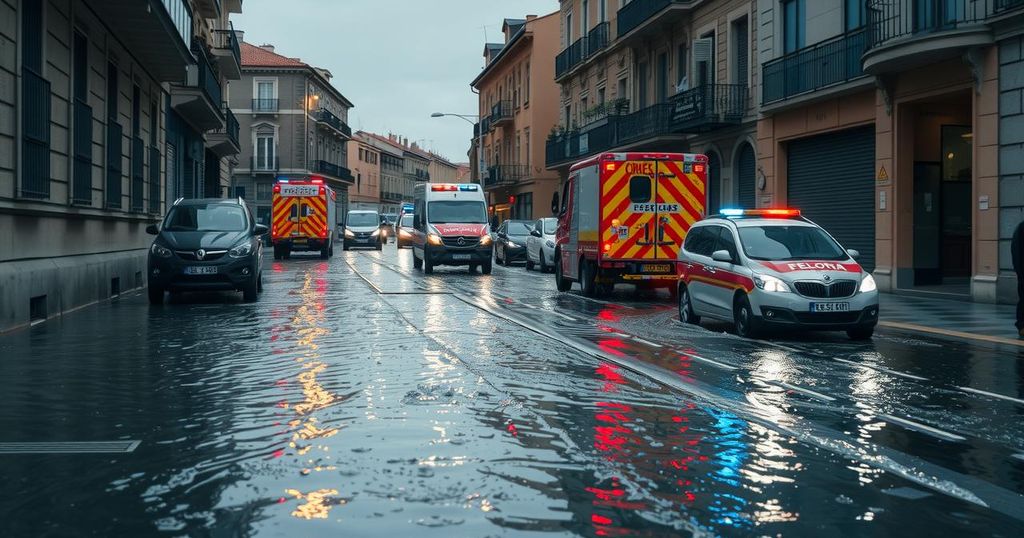Impact and Consequences of the Flash Floods in Spain
Flash floods in eastern Spain led to at least 158 fatalities, primarily in Valencia. The extreme weather was due to unprecedented rainfall, influenced by climate change factors, following prolonged droughts. Recovery efforts are ongoing, as affected communities face significant challenges.
In eastern Spain, flash floods triggered by intense rainfall on a Tuesday resulted in catastrophic consequences, claiming at least 158 lives, with the majority of casualties occurring in the Valencia region. The sudden floods overwhelmed individuals in vehicles, homes, and businesses, leaving many others in distress. To date, authorities have recovered a total of 158 bodies from the floodwaters, with search efforts still ongoing for additional missing individuals. The impacted communities are now engaged in cleanup efforts amidst challenges such as power outages and shortages of essential supplies. The cause of this unprecedented flooding can be traced to an extreme weather phenomenon where heavy rains fell over the Magro and Turia river basins, leading to overflow and mass destruction. It was reported that during this incident, Chiva received more rainfall in eight hours than it had accumulated over the previous 20 months, which meteorologists have termed an “extraordinary” deluge. Unfortunately, a significant number of residents were caught unaware, unable to heed warnings issued by authorities just prior to the downpour. Scientists suggest that human-induced climate change played a role in the floods, with warmer air holding more moisture and the Mediterranean Sea’s unusually high surface temperatures potentially contributing to such extreme weather patterns. Furthermore, the stalled jet stream created a weather system known as a cut-off lower pressure storm system, which poured relentless rain over the area. This event followed a period of severe drought that plagued Spain between 2022 and 2023, indicating a troubling pattern of alternating drought and flood cycles due to climate change. Historically, Spain has periodically experienced severe autumn storms; however, this particular incident stands out as the most disastrous in recent memory, surpassing earlier events such as those in 1957 which resulted in at least 81 fatalities. The current disaster is now recognized as Spain’s deadliest natural catastrophe in recent history, outpacing previous tragic floods, such as the Biescas campsite incident in 1996.
The recent flooding in Spain stands as a stark reminder of the increasing frequency and intensity of climate-related disasters, particularly within the Mediterranean region, which is particularly vulnerable due to its geographical characteristics and changing climate patterns. Meteorological studies have increasingly linked these severe weather events to broader changes induced by climate change, including atypically high sea temperatures and altered weather systems. This event represents a continuing trend of climate-related extremes affecting Spain, as experts emphasize the growing concern regarding the interplay between extended drought periods and sudden extreme floods.
In summary, the devastating flash floods in eastern Spain that occurred due to extraordinary rainfall events have resulted in significant loss of life and property. Climate scientists highlight the influence of climate change in the severity of such storms, which reflects an ongoing trend across the region. With recovery efforts underway, both the urgency of immediate aid and the need for long-term strategies to combat climate impacts remain paramount for affected communities.
Original Source: apnews.com




Post Comment